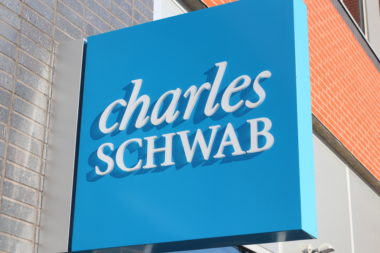Born from a merger of Pittsburgh National Corporation and Provident National Corporation in 1983, Pittsburg-based PNC bank is the ninth largest in the U.S., serving more than eight million customers in the mid-Atlantic, Southeast, and Midwest.
PNC offers a full complement of deposit account options, lending, credit card, cash management and investment services, and maintains nearly 2,500 physical branches. Although they charge lower-than-average account fees, like many large banks, interest rates on savings products aren’t the highest.
Table of Contents
What Is PNC and How Does It Work?
PNC offers retail banking services comparable to those offered by other large banks like Chase or Citibank. Although the physical branches can only be found in some states, anyone may open an account online.
In fact, one of PNC Banks’s strengths is its Virtual Wallet account option. The Virtual Wallet is an app-based account designed to help customers manage their spending and savings through a full suite of digital tools. Your money is allocated between three separate accounts: Spend, a non-interest bearing checking account, Reserve, an interest-bearing checking account for short-term savings, and Growth, an interest-bearing account for long-term savings.
Using the Wallet tools, you can create a budget using an included calendar to track paydays and bill due dates, see where you spend your money with a category breakdown, and automatically transfer funds into a savings account. Ultimately, the Virtual Wallet aims to make it easier to see what you have available to spend and when you’re in danger of overspending.
PNC’s interest rates are market-based, and may be confusing. Depending on where you live, you’ll earn more or less on your savings. If you live in one of the 31 states outside the primary market (e.g. New England and the West Coast) you may qualify for a high-yield savings account that pays well above the national average without any stipulations. However, if you live in one of PNC’s primary market states, savings accounts earn a lower interest rate, and only if certain account thresholds are met.
PNC Bank also offers home mortgages, mortgage refinancing, home equity loans and lines of credit, auto loans, personal loans, and student loans.
In What States Is PNC Located?
PNC Bank has physical branch locations in the following states: Alabama, Delaware, Florida, Georgia, Kentucky, Indiana, Illinois, Kansas, Maryland, Michigan, Missouri, New Jersey, New York, North Carolina, Ohio, Pennsylvania, South Carolina, Texas, Virginia, West Virginia, and Wisconsin. They also have branches in the District of Columbia.
PNC owns 1,800 ATMs in their service area.
PNC Account Options
PNC offers multiple account options for checking, savings, and money markets.
Checking Accounts
PNC has four checking account options: Virtual Wallet, Virtual Wallet Student, Virtual Wallet with Performance Spend, and Virtual Wallet with Performance Select.
Virtual Wallet replaces what used to be known as Standard Checking. This account charges a $7 monthly fee, which is waived if you are over 62 years old, have monthly direct deposits of $500 or more, or maintain a daily average balance of $500 or more. You can withdraw up to $500 per day from an ATM with this account.
Virtual Wallet With Performance Spend Checking costs $15 per month, unless you have direct deposits totaling $2,000 per month or more, maintain a daily balance of $2,000 or more, or have a combined $10,000 in PNC account balances. This account allows for a higher daily ATM withdrawal limit of $1,000.
Virtual Wallet With Performance Select is the highest-tier checking account, with a $25 monthly fee unless you make direct deposits or maintain a balance of $10,000 or have $25,000 in combined balances. With this account you may withdraw up to $1,500 per day from an ATM, and all ATM fees are reimbursed if you don’t use a PNC machine.
PNC Virtual Wallet Student offers the same features as the Virtual Wallet, only without any monthly fees for up to six years for students. The bank also offers an additional second-chance checking account, the Foundation checking account. Designed to help customers rebuild financial responsibility, this account has a $9 monthly fee that cannot be waived and a $100 per day ATM withdrawal limit.
All of PNC Bank’s checking accounts offer the ability to earn cash back on select purchases made with a debit card, reimbursement of some ATM fees, and higher relationship interest rates on savings accounts. However, money in your Spend account doesn’t earn interest, and only the funds in the Growth account earn the highest rate.
Savings Accounts
In addition to the combined checking and savings accounts of Virtual Wallet, PNC Bank offers a High-Yield Savings Account to customers in designated markets; i.e., those markets outside the primary service area. Currently the account has a 1.75% annual percentage yield (APY). There are no monthly service fees. Parents can also open a Sesame Street-branded savings account for children under 18. The “S is for Savings” Account is $5 per month, or free for balances over $300.
Money Market Accounts
PNC offers a single money market account option, the Premiere Money Market. To earn the highest interest rates, you need to maintain a balance of at least $10,000, or qualify for relationship rates based on your activity from other linked PNC accounts. The monthly fee for a Premiere Money Market account is $12, but it’s waived if your balance is $5,000 or more.
PNC Financial Features
In addition to checking and savings, PNC Bank customers have access to other financial services and features.
ATMs
PNC has thousands of ATMs, and reimburses fees for some non-PNC ATM transactions. For added security, you can request single-use access codes via the mobile app to access your money via ATM.
Mobile Banking
PNC Bank customers can access their accounts and initiate transactions using the PNC online banking site or mobile app. This includes checking your balance, paying bills, sending money via Zelle, making deposits and connecting with customer service.
Retirement Services
PNC Bank offers a range of retirement services, including financial planning, wealth management, individual retirement accounts (IRAs), and brokerage and investment accounts.
Rewards and Reimbursements
PNC Virtual Wallet account holders automatically receive a debit card, and can earn rewards on certain purchases from participating retailers, which vary. The bank will also reimburse fees for using non-PNC ATMs up to $5 to $10 per month depending on your account type.
Is PNC Right For Me?
If you live in PNC’s primary service market, or don’t mind doing all of your banking online, PNC may be a good choice, especially when you want a little extra help with budgeting and saving. However, if you live outside of the service area and need to use ATMs frequently to access cash, you might find the fee reimbursements aren’t adequate.
If you are looking for a bank that pays high interest rates, PNC might not be the best choice, as the highest rates require jumping through some hoops and maintaining higher balances. That said, the high-yield account is worth considering if you live outside the primary market, and the low fees can offset some of the lower rates on checking and savings accounts.
Image Source: https://depositphotos.com/





